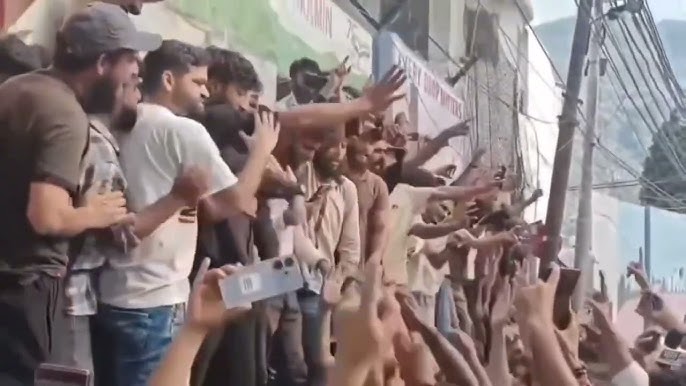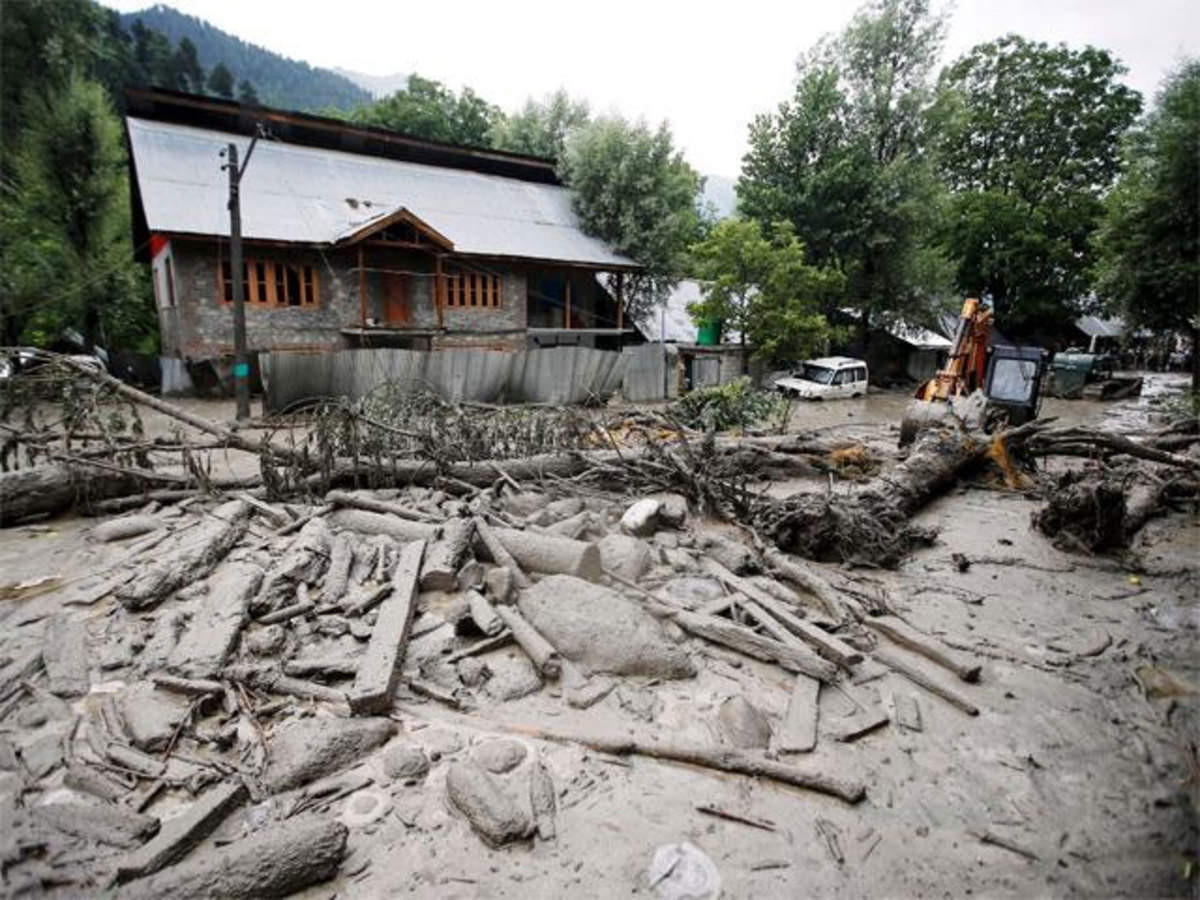Internet, Mobile Services Shut & Schools Closed Till Sept 14 After Mehraj Malik’s PSA Detention
By: Javid Amin | 11 Sep 2025
A district in lockdown-like conditions
Doda district in Jammu & Kashmir is on edge after the detention of Aam Aadmi Party MLA Mehraj Malik under the Public Safety Act (PSA). Authorities have suspended internet services across the district, cut mobile connectivity in several blocks, ordered schools closed until September 14, and kept prohibitory orders in force while deploying large numbers of paramilitary and police forces to sensitive areas. The measures follow protests over Malik’s arrest and wider anger stemming from the Hazratbal shrine controversy.
What’s happened — the verified facts (quick summary)
-
Mehraj Malik detained under PSA: Malik — AAP’s lone MLA in J&K from Doda — was detained under the PSA and lodged in Kathua jail, triggering protests in Doda and neighbouring areas.
-
Internet suspended districtwide: Authorities have suspended internet services across Doda for several days to curb the spread of unrest. Media reports indicate the suspension has been in place for three days.
-
Mobile shutdown in specific areas: Mobile connectivity has been reported shut in pockets such as Bhalesa, Kahara and Chilli Pingal for two days, hampering communications for residents.
-
Schools closed till September 14: The administration ordered closure of all schools in Doda district until Sept 14 as a precautionary measure amid continuing unrest.
-
Heavy security deployment & prohibitory orders: CRPF, SSB and local police have been deployed in strength; prohibitory orders (reportedly invoking Section 163 in reports) are in force to maintain order.
Why this escalation happened
Two immediate triggers converged:
-
Mehraj Malik’s PSA detention: The decision to detain a sitting MLA under the PSA — a law that allows administrative detention without trial for up to two years — has been sharply criticised by opposition leaders, civil society and Malik’s supporters. Authorities cited concerns about public order; opponents say the move is politically motivated. The detention triggered protests in Doda and Bhaderwah that turned violent in places.
-
The Hazratbal controversy: Earlier protests erupted in Srinagar after an inauguration involving the Ashoka emblem at the Hazratbal shrine drew widespread anger and subsequent detentions. That controversy has heightened the region’s sensitivity to perceived encroachments on religious and cultural symbols, increasing the potential for solidarity protests elsewhere — including Doda.
The administration’s response — communication restrictions, school closures, and large security deployments — appears aimed at preventing protests from spreading and at limiting instant mobilisation via social media and mobile networks. Media and local reports make clear those restrictions are directly connected to the unrest after Malik’s detention.
How daily life is being affected
Residents and local journalists report acute disruptions to everyday life:
-
Education paused: With schools closed till Sept 14, students — particularly those preparing for board or competitive exams — face uncertainty. Parents say they have received little official clarity about a plan to resume classes or catch up lost lessons.
-
Communication cutoffs: Internet suspension and mobile blackouts have left people unable to contact relatives, obtain work updates, or access online services. Local traders and small businesses that rely on digital payments and messaging report immediate losses.
-
Shortages and essential services hit: Reports from Thathri, Gandoh, Bhalesa and Kahara point to shortages of ration, drinking water and erratic electricity amid movement restrictions and closed shops. Locals say delivery chains have been affected by the shutdown and road disruptions.
-
Transport and trade: Highway and road disruptions (curfews and prohibitory orders) hinder the movement of goods and people across the region, hitting perishable trade and daily-wage workers.
Security posture: what forces are deployed and why
Reports indicate deployment of CRPF, SSB, CISF and local police to sensitive areas in and around Doda, with checkpoints and fortified presence at major junctions. The stated aim is to maintain law and order and prevent escalation, but such visible force can also raise tensions among local populations already anxious from recent events. Authorities are maintaining prohibitory orders — described in several reports as invocation of Section 163 (used locally in published reports) — to limit assembly and movement.
The political fallout: voices and reactions
-
AAP and Opposition: AAP and opposition leaders have condemned Malik’s detention as politically motivated and vowed legal and protest action. AAP national leaders said they would escalate the matter through legal channels and demonstrations.
-
Local leaders and civil society: Several local leaders and civil society actors have called for calm but also demanded transparency around the grounds for the PSA order and for restoration of basic services.
-
Central and local administration: Officials cite the need to prevent violence and maintain public order; they frame the internet and mobile suspensions, and school closures, as temporary measures aimed at de-escalation. Independent observers warn that prolonged communication blackouts can deepen mistrust and compound humanitarian hardship.
PSA and the democratic question
The detention of a sitting legislator under the PSA raises difficult legal and democratic questions. The PSA has long been criticised by human rights groups for permitting preventive detention on broad grounds and for limited judicial oversight. Critics argue that using PSA against elected representatives sets a troubling precedent for democratic discourse and accountability; supporters of the detention say it is a security necessity in volatile situations. The Doda episode brings these competing views into sharp relief.
The humanitarian angle: shortages, exams and vulnerable groups
Beyond politics, the blackout and shutdown have immediate humanitarian consequences:
-
Students: Closure of schools disrupts exam schedules and academic planning; students in remote areas face the double blow of no connectivity plus no classes.
-
Health and medicine: Communication cuts complicate coordination for medical emergencies and ambulance services; supply chains for essential medicines can be disrupted when transport and mobile networks are affected. (Local reporting highlights residents’ anxieties about access to essential services.)
-
Livelihoods: Daily-wage labourers, small shop owners and transporters face income loss due to movement restrictions and market closures.
Broader context: Hazratbal outrage and the political climate in J&K
The Doda unrest is occurring against a backdrop of tension in Srinagar after the Hazratbal shrine controversy — where a plaque and the Ashoka emblem’s presence inside shrine precincts sparked protests and led to detentions — which has amplified communal sensitivities and sharpened political fault lines across J&K. The Hazratbal episode and responses from various parties helped prime public sentiment at a time when arrests like Malik’s can trigger rapid solidarity protests.
What to watch next (near-term indicators)
-
Duration of internet/mobile suspension and school closures: How long these remain in force will determine the scale of disruption and the scope for dialogue.
-
Legal developments around Malik’s PSA order: Any court action, review or release will be a turning point. Watch for details of the detention order and legal petitions.
-
Protests and containment: Whether protests subside or spread to neighbouring districts will shape whether the administration eases restrictions or extends them.
-
Humanitarian response: Steps taken to ensure ration, water and power supply in affected pockets will affect public sentiment and stability.



